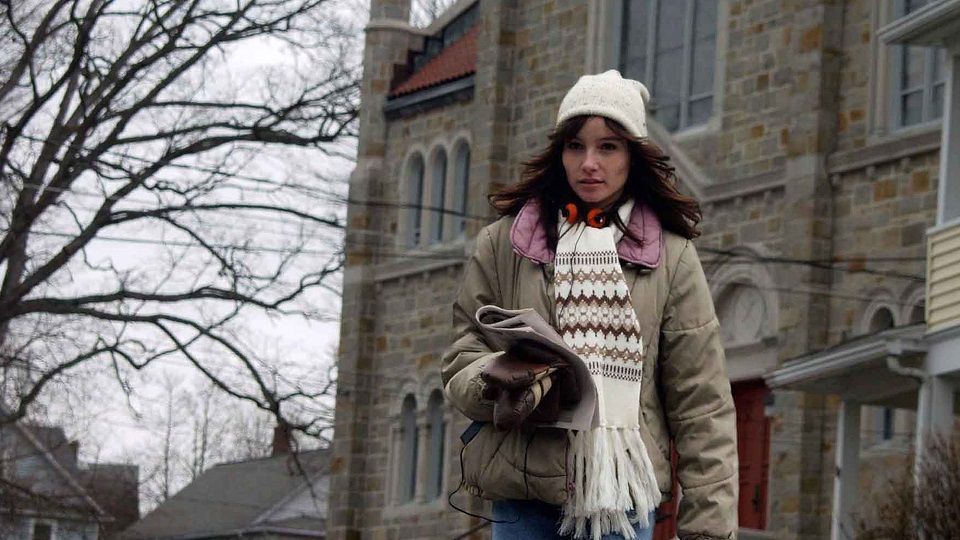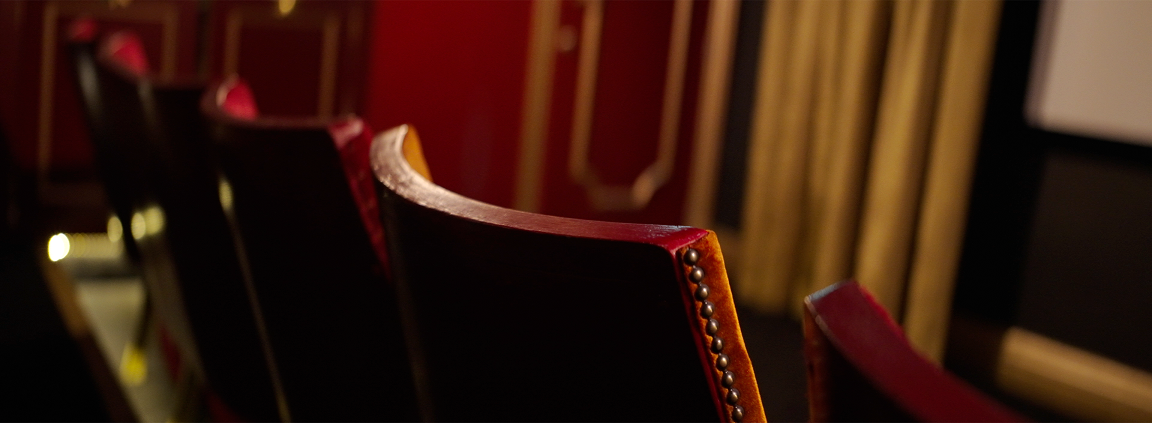Midlands Movies Top 20 Films of 2024 (10-1)
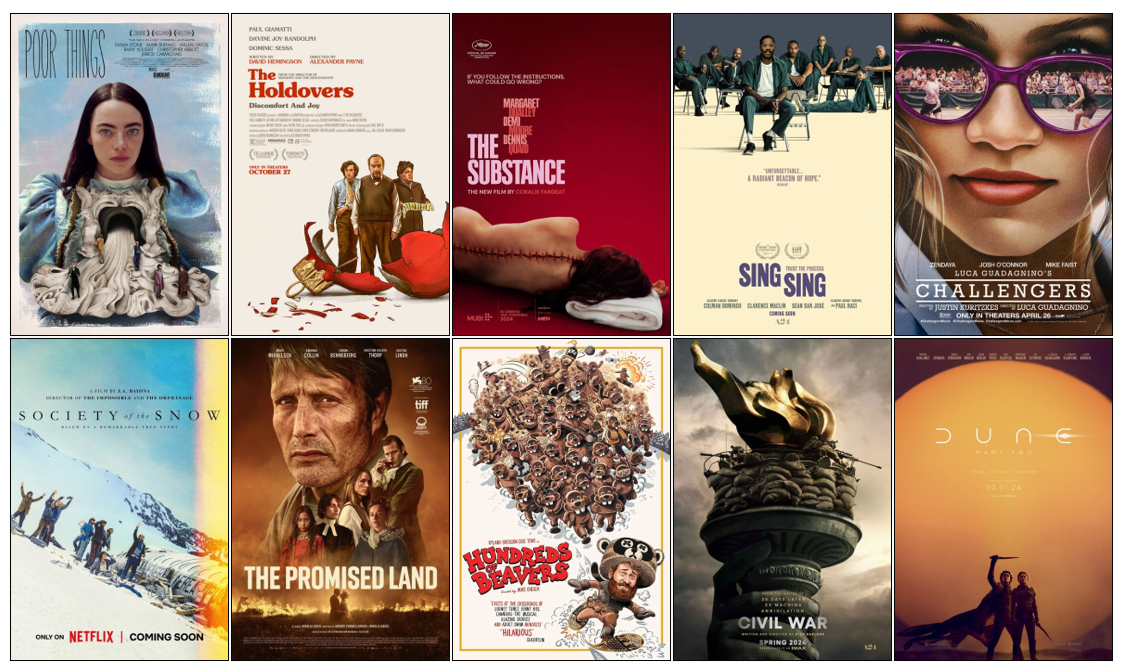
We continue our run-down of our favourite 20 films of 2024 but before you go any further, please check out part one of our list (numbers 20-11) by clicking right here
Now, on with the countdown...
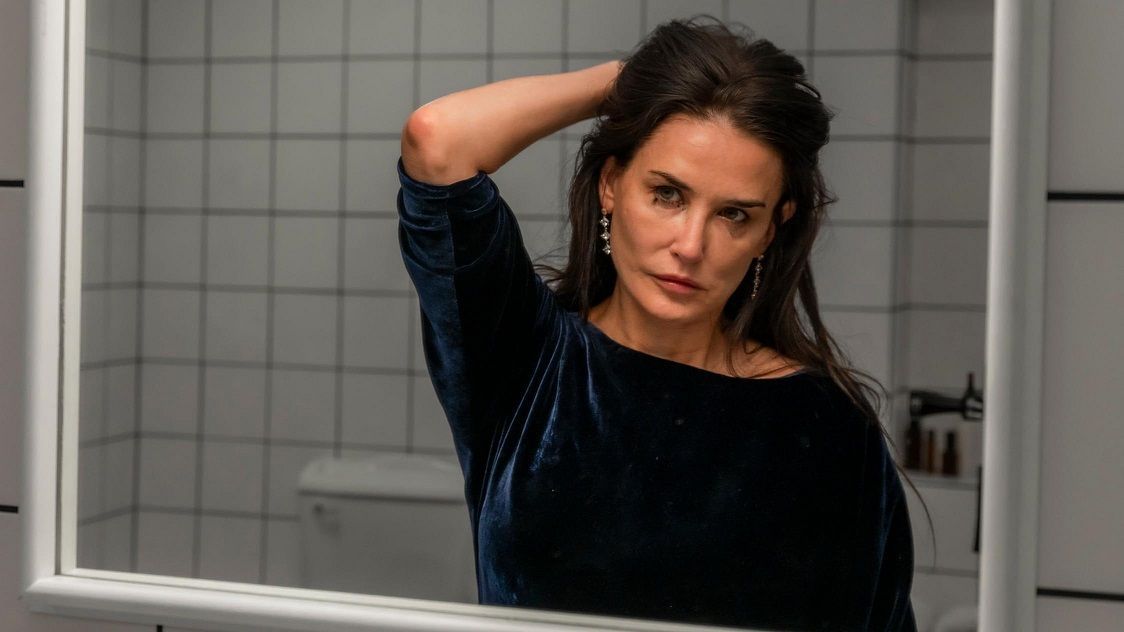
The Substance (Directed by Coralie Fargeat)
6 years after Revenge dropped comfortably into our
Top 20 films of that year, director Coralie Fargeat returns with another horror looking at female-fronted physicality and redemption. Demi Moore stars as a celebrity tossed aside as she ages, but begins to ingest a drug that creates an alternative younger version of herself. Moore becomes ‘addicted’ to being this youthful variant (played by an astounding Margaret Qualley) but as her career grows, so do the problems caused by their lives switching. Exploring the exploitative world of female idealism, Moore gives a masterly performance taking her body and mind through an intense transformation and deserves high praise for her exceptional efforts. Its destabilising narrative is full of gross horror surprises and the filmmaking technique uses wild colour and chaotic sound. It also revels in beautiful and sometimes bizarre physiques and is a stunning achievement, highlighting as it does a horrendous boulevard of broken not just dreams - but bodies too.
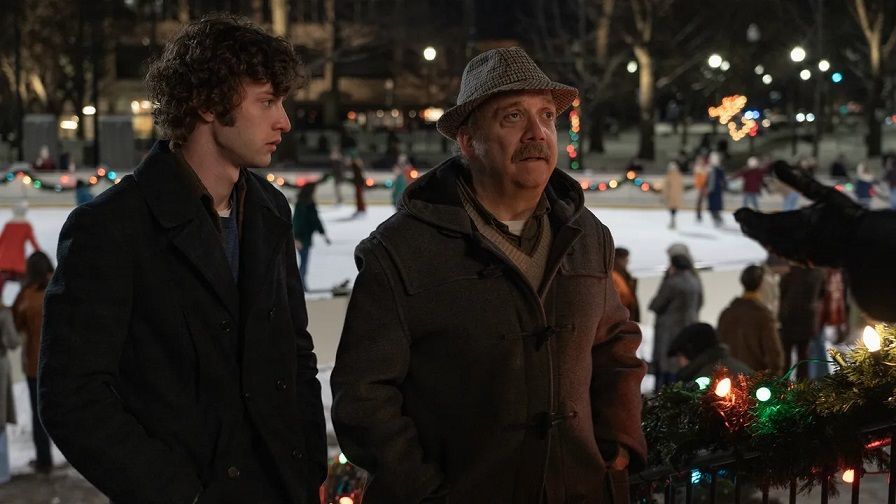
The Holdovers (Directed by Alexander Payne)
Standout performances from Paul Giamatti and Da'Vine Joy Randolph anchor this heart-warming comedy-drama set over the festive period at a New England boarding school. Giamatti’s strict classics tutor and educational Scrooge clashes with Dominic Sessa’s student as they battle on a holiday holdover period during a winter break. It takes the 'cantankerous teacher learning life lessons from a student' and plays with it incredibly well, with humorous and tender interactions alongside great performances. It’s an emotional and satisfying journey starting out with two people very cold in spirit who slowly warm their frozen hearts. And although Giamatti’s surrogate is the glue holding it together, he’s only as good as his support cast who match him every step of the way. Payne’s stoic direction focuses firmly on the first-rate actors and a bittersweet ending will see tears flow as much as titters in an unlikely Christmas miracle of a film. Full review here
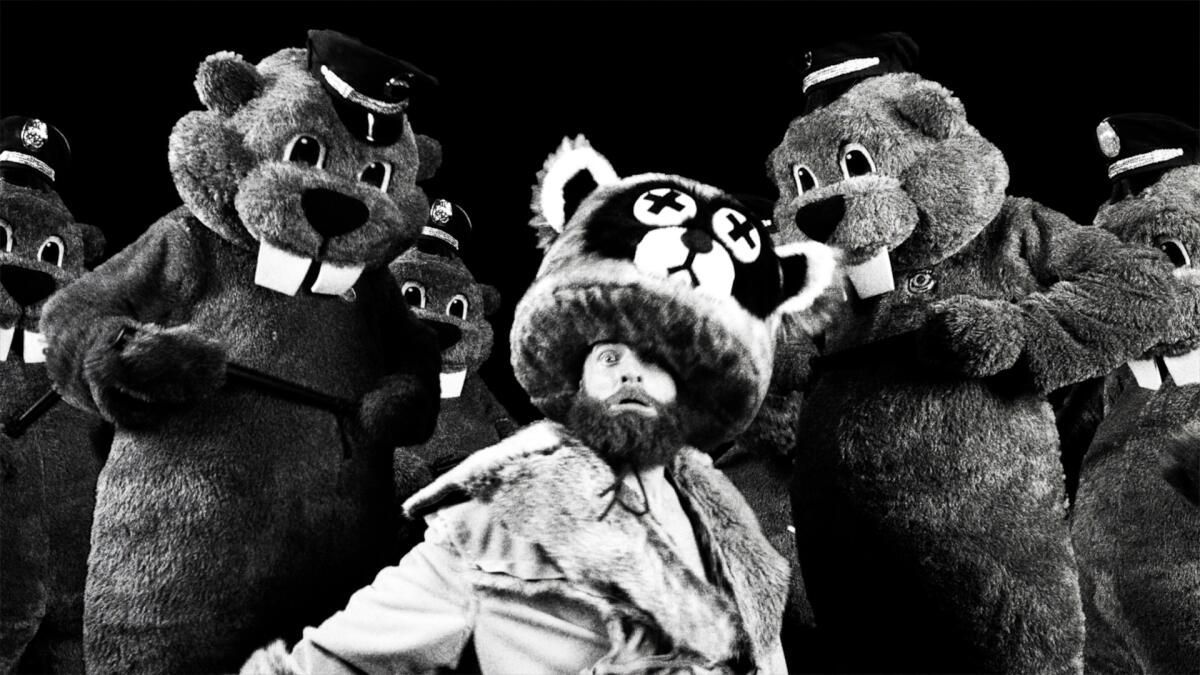
Hundreds of Beavers (Directed by Mike Cheslik)
Influenced by 1930s slapstick, the film’s co-writer stars as an applejack maker whose farm is destroyed by beavers and in a desperate effort to stay alive, attempts to capture various woodland creatures and sell their pelts to a fur trapper. It’s a (semi-)live-action version of Warner Bros’ Looney Tunes, yet its black & white cinematography of a freezing winter is an effective evocation of Chaplin movies. And amongst its pleasures, no genre, puppet, stop-motion animation, costumed caricature, joke or 4th-wall breaking is off the table and it's all contained within a homemade and incredibly charming cut-out-collage style with the director's ingenuity and creativity making each scene an enjoyable sketch on its own. Stunts and crude jokes have the simplistic violent pleasures of Jackass, and just when you think you’ve got a grip on it, the movie avoids doing anything by the book and is all the better for it. Some may call it an animation, a drama, a farce, a tragicomedy, a romance, a detective story, a parody or many other things. But I’d call it one of the most unique and funny films I’ve seen in a very long time with hundreds of reasons to recommend it. Full review here
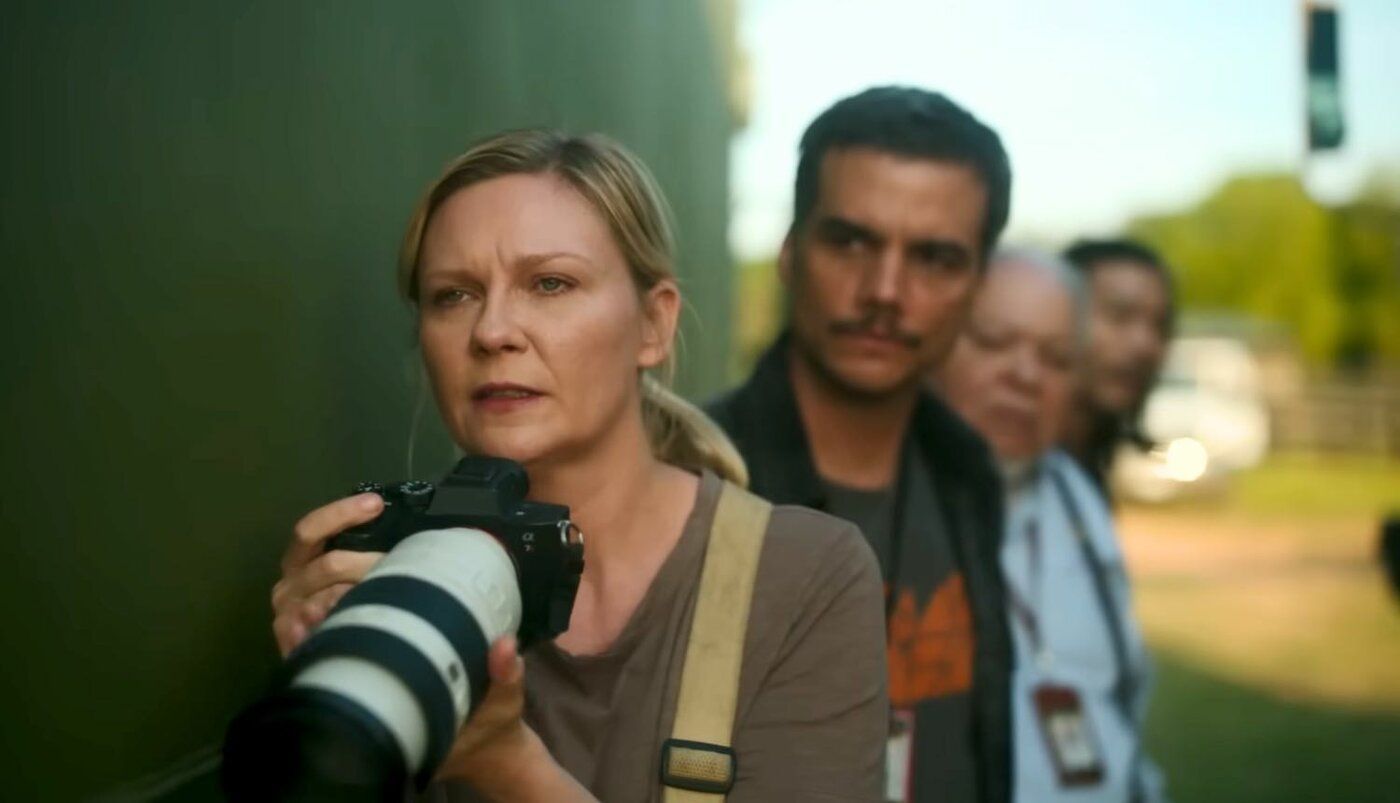
Civil War (Directed by Alex Garland)
With head-scratching sci-fi already under his belt, director Alex Garland moves to explore a not-so-distant future where the USA is split into two fighting factions attempting to control the country. Delving deep into contemporary concerns, Garland actually keeps the politics intentionally murky as it dissects despots, authoritarianism, culture clashes, media, racism, antipathy and much more. And despite the astute observations on government and oppressive regimes, at the centre of it all is a thrilling journey across an American landscape, where conflicts play out through the lens of a senior photo-journalist (Kirsten Dunst in a career-best performance) and an out-of-depth prodigy (a wide-eyed Cailee Spaeny). Clever, insightful and with some chilling moments (take a bow Jesse Plemons for a scene-stealing cameo), the film is filled with entertaining sequences alongside its look at the current extremities of political power.
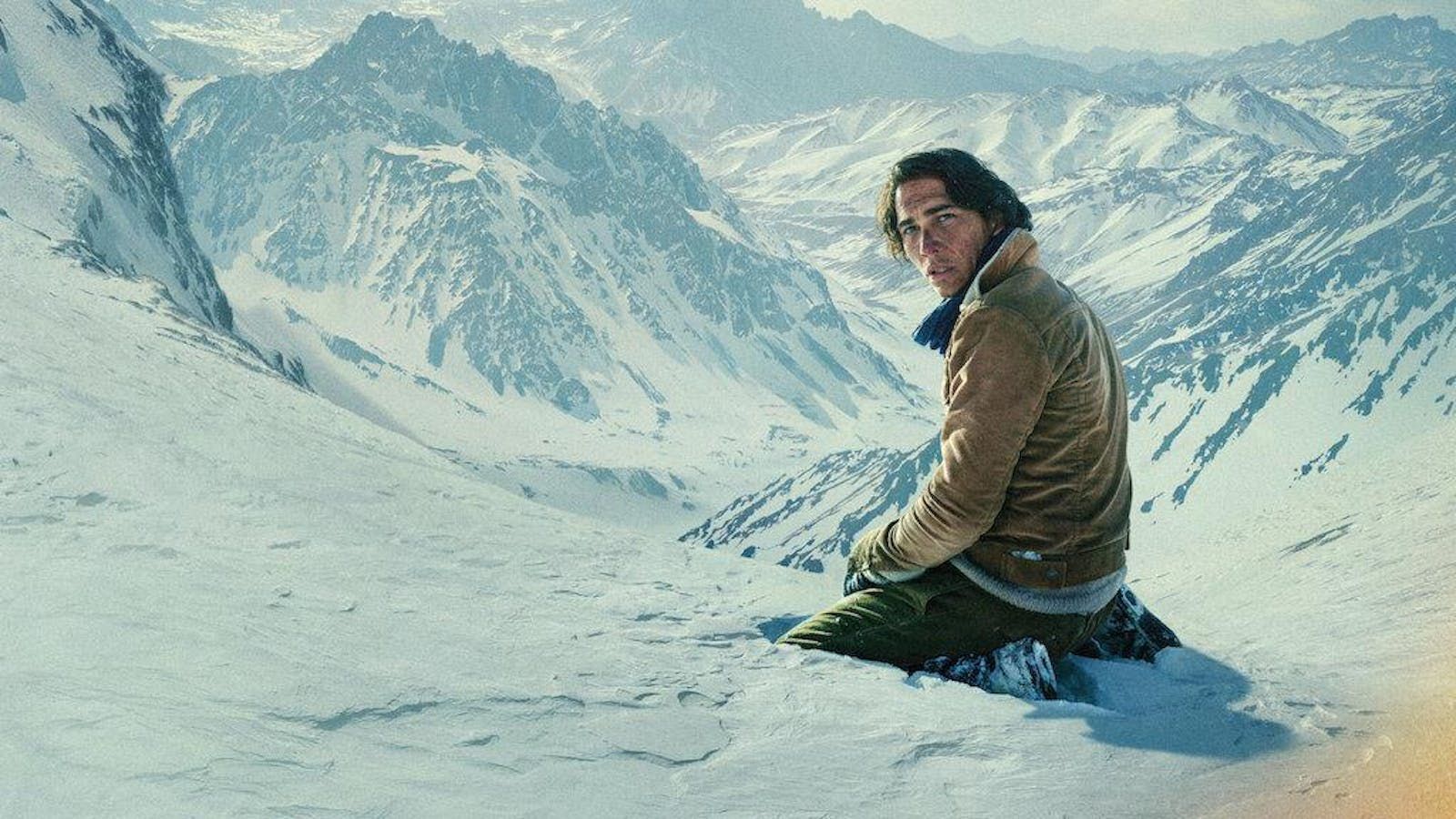
Society of the Snow (Directed by J. A. Bayona)
It hit Netflix early in the year and may go forgotten by some, but this compelling real-life drama impressively explores the 1972 true story of an Uruguayan rugby team whose plane crashes in the Andes Mountains. In efforts to survive they attempt to overcome the remote mountain wilderness, avalanches, injury and hunger - where the unthinkable starts to become an option to avoid what seems like inevitable death. With a cast of newcomers, and tremendously tactile location shooting, the risks facing them and the team’s efforts to endure for as long as they can,create a palpable danger audiences will feel every cold step of the way. An exhilarating and shocking plane crash sequence merges brilliantly with the quieter teamworking and emotional beats, ending with a film that is a fascinating portrait of faith, belief and determination in the face of the worst possible circumstances.
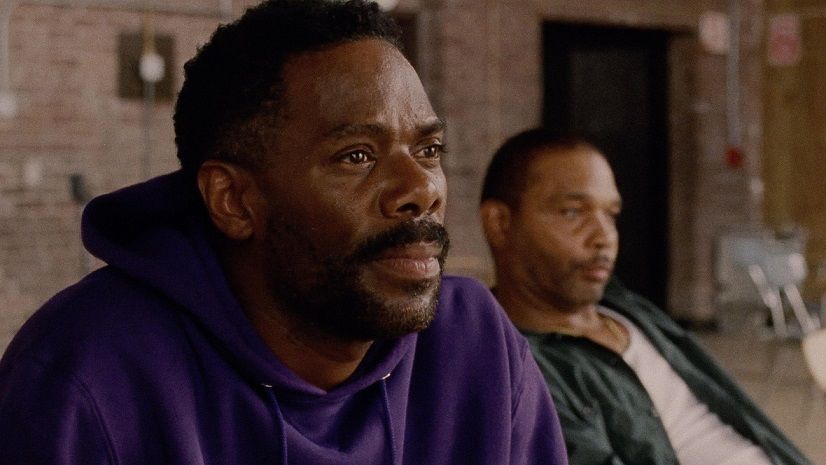
Sing Sing (Directed by Greg Kwedar)
Colman Domingo gives a powerhouse performance as an incarcerated con who is part of a prison theatre programme attempting to create a stage show performance with fellow inmates. The film mixes professional actors with former alumni of the real-life arts programme, one of which is Clarence "Divine Eye" Maclin, who uses his role as Hamlet in an attempt to turn his life from one of anger and bitterness into something more positive and redemptive. Exploring art as a form of therapy, the men not only use their creativity to “escape” their locked up existence, but help them face their crimes, their loss and what the future may hold in another type of life. The engagingly tense drama mixes brilliantly with ideas of artistic expression and some lighthearted moments help balance the conflicted outlook of the men' situation with optimism. The film’s success stems from it showing the strength of art as a way to probe masculinity and more, but also leaves room for hope and the ability to confront personal responsibility and make changes for the better.
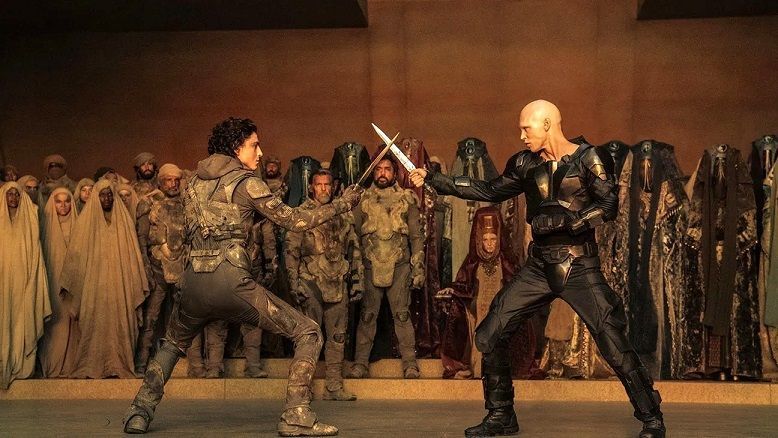
Dune: Part Two (Directed by Denis Villeneuve)
We return to Arrakis for the second installment of the dense and dusty space opera as Timothée Chalamet’s Paul joins the nomadic Fremen to take on the Harkonnens in a battle for the planet. Building upon the lore from part one, the film doesn’t have the issue of establishing its game players which sees it bolt out the blocks from the start with politics, scheming and thrilling action sequences filling its nearly three-hour runtime. Beautiful cinematography captures an array of outstanding costume and production design elements and Paul's sandworm-riding moment may be one of the best scenes of the year (especially on a huge cinema screen). The large and experienced cast gets further expanded too - with newbie Austin Butler in particular stealing scenes during his all-too-brief villainous ploys. Epic in scope and delivered with aplomb by Villeneuve who knows EXACTLY what every single part - be they large or small - will achieve, has resulted in one of the best sequels of recent memory. And perhaps even of all time.
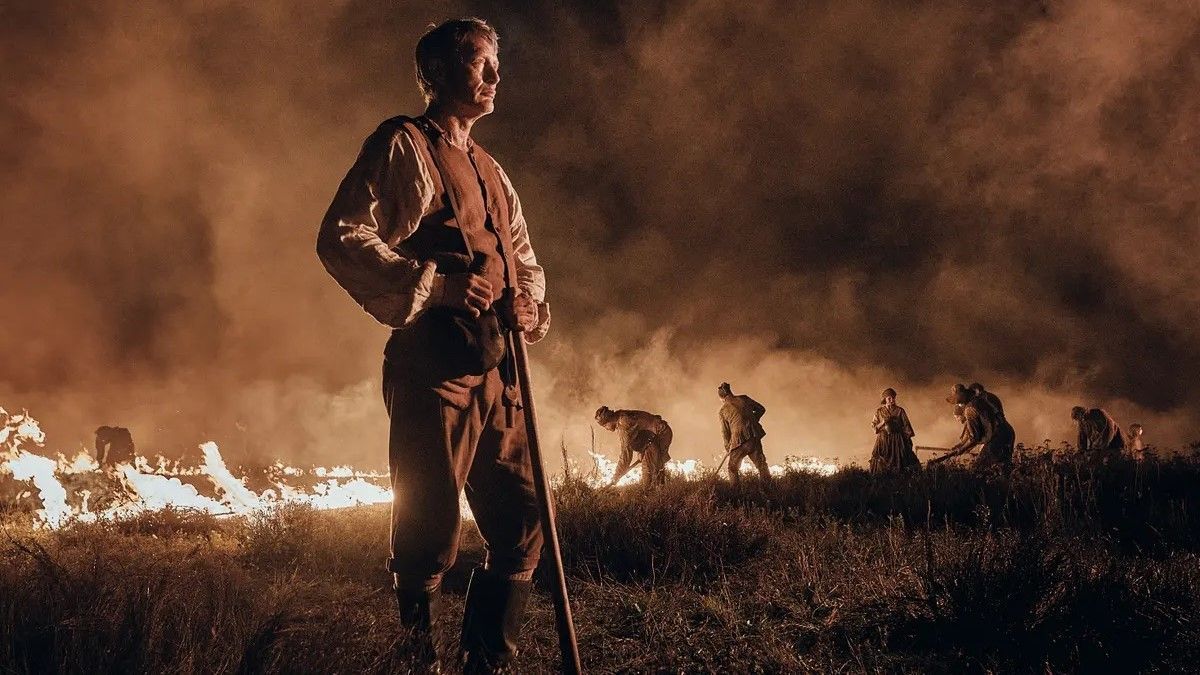
Promised Land (Directed by Nikolaj Arcel)
A fantastic film exploring legacy, family and duty, Mads Mikkelsen plays a retired army veteran who gains permission to cultivate an area of desolate moorland. Hoping to establish a colony he faces a ruthless landowner, who also claims ownership, and its their confrontations that make for a fascinating historical clash. A feast for the eyes, the sumptuous manor houses are candle lit and contrast with the brutal rustic landscapes captured in muddy browns, yet contain their own natural elegance. Relationships with locals and the women in his life slowly bring warmth and compassion to Mads’ cold outlook, but he is soon forced to make gut-wrenching decisions as he battles Simon Bennebjerg’s brilliantly loathsome opponent. One of the finest actors working today Mikkelsen has an uncanny knack to delve deep into the souls of isolated and tormented men and it’s his magnificent emotional moments that take root in this story. A working man fighting a classist battle against the odds is a well-worn tale, but the film is an engaging and hugely satisfying historical drama harvesting the many talents Mikkelsen has to offer. Full review here
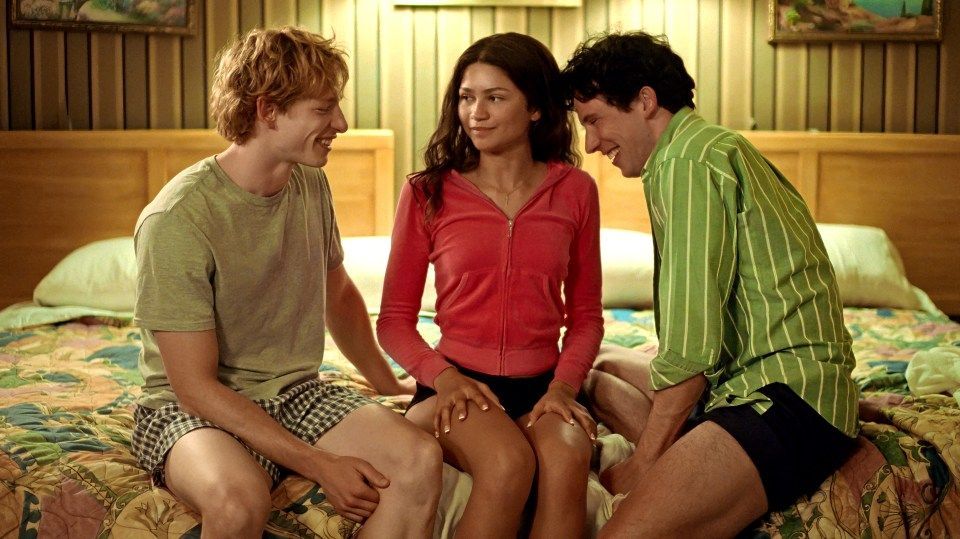
Challengers (Directed by Luca Guadagnino)
A thrilling sports drama exploring a raunchy rivalry between young tennis stars, Challengers shuns a game of doubles to serve up a saucy threesome which sees Zendaya become the focus of attention of both Josh O'Connor and Mike Faist. Set over 13 years of their intertwining relationships, the three try to gain their own personal advantage on and off the court as they each fall foul to their addiction to winning, no matter the costs. Friendships fizzle and backhanded betrayals drive wedges between them which compliment the director's tension-filled tournaments featuring pumping tennis sequences. An ace and arousing film, it culminates in an adrenaline-fuelled finale with brilliantly staged back-and-forth camera work, leaving Challengers as a grand slam of a movie that showcases three passionate lead performances from the hottest actors in Hollywood.
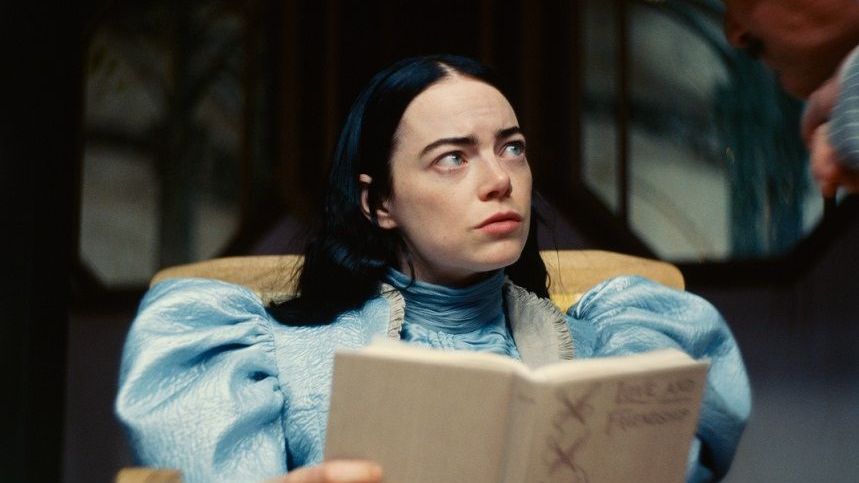
Poor Things (Directed by Yorgos Lanthimos)
Emma Stone returns as muse for seemingly her favourite director to play a young Victorian woman brought back to life via a brain transplant by Willem Dafoe’s mad scientist. Replacing a brain with an infant’s mind, Stone brilliantly encapsulates a child-like wonder who soon discovers the world and its seedy components at break-neck speed. Like The Favourite, Lanthimos again uses fish/wide-eye camera lenses to provide a distorted new view on the proceedings and the impeccable costumes and production design move from steampunk to Burton-style fairy tale. Pleasure-seeking Bella cannot be controlled by successive lovers, partners, “punters” and fiancés and her blossoming is contextualised with darker life struggles. But all this is done with a knowing and darkly comedic tone keeping some of the riskier elements in the arena of farce without ever undermining them. Delivered with naughtiness, humour and moments of pure surrealism, Poor Things deftly utilises every cinema trick from black and white photography to luscious set-design via pantomime performances and great musical moments. And all this is played excellently by a stacked cast revelling in their over-the-top characters - ending with a movie that has gorgeous visuals but something to say to back them up.
Michael Sales
